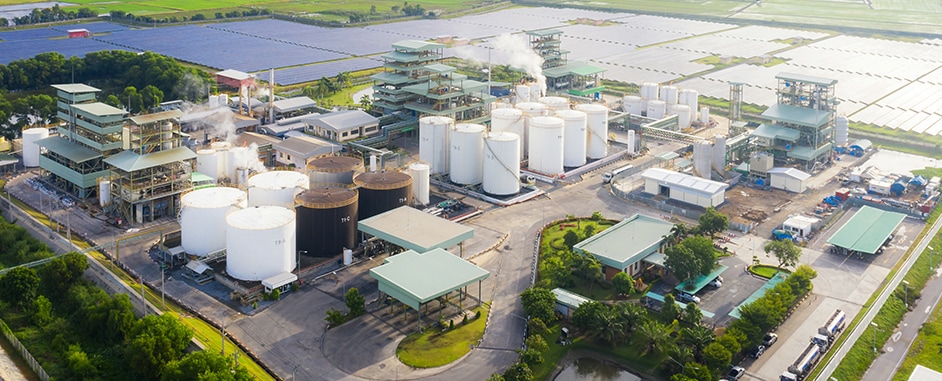Digital enterprises can now do both - meet sustainability targets and business goals

Even on a single industrial campus, complex interdependencies between people, processes and machines have an impact on environmental and business performance, affecting everything from power consumption to overall carbon footprint. Those interdependencies can be managed — and optimized — with a smart, agile, real-time communications network, cloud capabilities and digital applications, which is why more and more companies are turning to digitalization strategies to help achieve both sustainability and business targets.
The World Economic Forum has said speeding up the transition to a circular (low-waste or zero-waste) economy is critical for meeting global climate goals by 2050, and that “this can only be achieved through focused and responsible digitalization.”
Digitalization depends heavily on the networks that provide critical connectivity and cloud functions — site-wide, across and between industrial campuses and even throughout the end-to-end supply chain. Industrial-grade private wireless, mission-critical IP/MPLS, optical, and fixed access networks play an important role in helping companies connect their sites and extend the reach of sustainability enablers, such as Internet of Things (IoT) connected sensors for temperature and emissions monitoring or logistics data sharing and AI/AR functions to optimize transport scenarios and cut back on fuel consumption.
Insights and analytics need a good network
Choose any industry and it’s clear how smart networks and digitalization together create new opportunities to make industry more sustainable. An example in the agriculture industry is the Nokia Bell Labs collaboration with AeroFarms.
AeroFarms is a Certified B Corporation (“B Corp”), meaning it is committed to meeting the highest standards of social, environmental and corporate governance (ESG) performance. Its vertical urban farms in the United States and United Arab Emirates are on the forefront of agricultural innovation, and part of a movement to grow and harvest food closer to where it’s consumed by putting farms in multi-story urban buildings.
The AeroFarms–Nokia Bell Labs partnership centers on an artificial intelligence (AI)-enabled “plant vision technology” that uses integrated machine vision and machine learning to identify and track how plants interact and affect each other. The data collected and the autonomous systems within the vertical farm operations are supported by cutting-edge private wireless connectivity. By enhancing the performance of AeroFarms’ campus installations, the solution will radically enhance the company’s ability to solve food and agriculture supply chain challenges. Through AeroFarms’ innovative and intelligent agriculture operation, AeroFarms stated they can produce nearly 400 times the output of a traditional outdoor farm, with 95% less water usage and no pesticides.
Sustainability is good business
My colleague Chris Johnson pointed out in a recent blog that, with the right connectivity and digital technologies, sustainability measures also become business enhancers. DHL has a multi-faceted approach to sustainability covering operations, work environments, communities and more. DHL Supply Chain won a pair of awards for the smart warehousing solution it developed with Nokia Shanghai Bell in China.
Speeding and optimizing logistics operations to do more with the same or fewer resources, decreasing idling time of vehicles, implementing smart lighting systems in the industrial environment, and having real-time monitoring data on environmental conditions all create a positive impact in terms of both efficiency and the environment.
Connectivity beyond a single campus
The environmental and business benefits achieved through intelligent networks apply equally to organizations with multiple campuses. The University of Pittsburgh Medical Center (UPMC), a U.S.-based healthcare provider with 92,000 employees and a 3.8 million-member health insurance division operates 40 hospitals in Pennsylvania, all of which are connected with the help of Nokia. With a strong IP/MPLS foundation for their digital transformation in place across the organization, UPMC is able to advance their goals, and support their facilities and supplier sustainability initiatives.
The “everything is connected” principle extends up to the highest scales of interaction, as our CEO Pekka Lundmark stated, “There is no green without digital.” A resilient, intelligent mission-critical, network foundation - connecting people, things and processes needs to be in place to achieve both business and sustainability goals – neither of which can be disassociated in the Industry 4.0 era.




